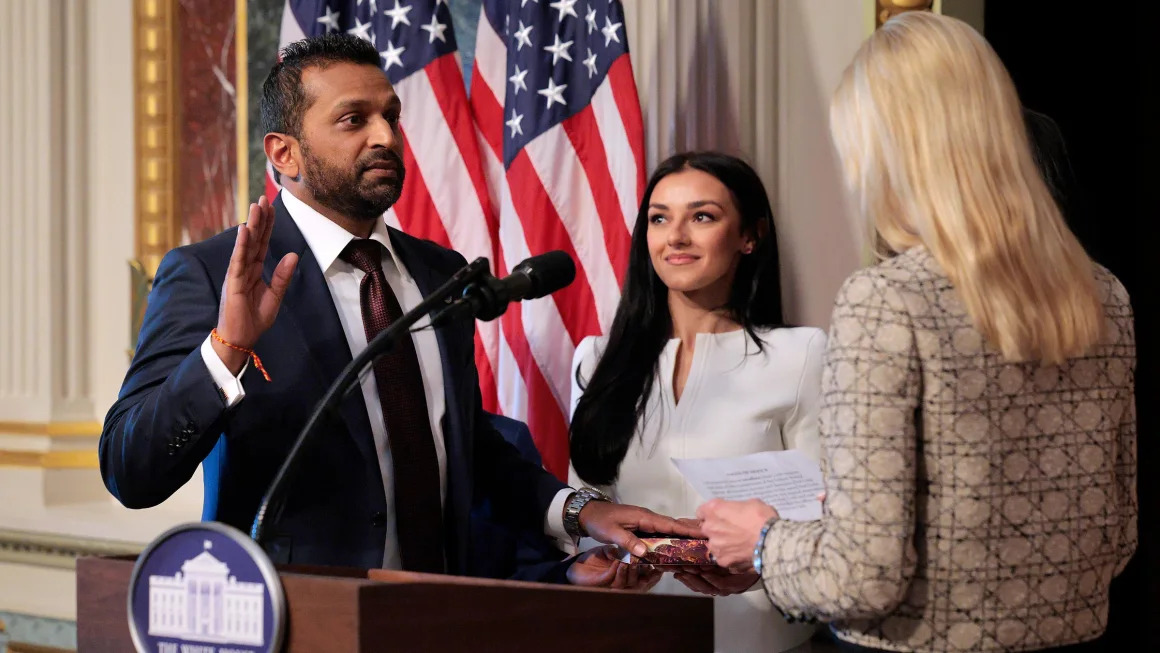FBI Director Kash Patel entered his seventh-floor office at headquarters last week and immediately ordered new carpeting and window coverings—calling the space “dingy.” But Patel’s plans for remaking the FBI go far beyond aesthetics, as his first week in office has already ignited internal chaos, pushback from agents, and a battle over the future of the bureau.
Before Patel even stepped into the J. Edgar Hoover Building, tensions were already simmering between Trump-appointed officials and career FBI staff. A plan to fire more than 100 mid- and senior-level employees quickly escalated into a weeklong standoff between Trump’s Acting Deputy Attorney General Emil Bove and FBI leadership. At the heart of the controversy was a list of over 5,000 employees, many of whom had worked on investigations into January 6 or Donald Trump, fueling concerns about politically motivated purges within the agency.
The backlash was swift. A former FBI agent involved in Patel’s advisory group said some members “immediately said ‘No way’” after being presented with the list of officials to be fired. The internal resistance led President Donald Trump to appoint conservative commentator Dan Bongino as Deputy Director, derailing Patel’s earlier plan to select a career agent for the role.
The political infighting has left current and former agents worried about how the FBI can maintain focus on major security threats, including those posed by China, Russia, Iran, and terrorist organizations.
“They are going to miss something,” one former FBI official warned, referencing Bove’s controversial order for employees to complete a questionnaire detailing their work on the January 6 attack on the U.S. Capitol. Some within the FBI fear the scrutiny will make agents hesitant to pursue politically sensitive cases, including those related to Russian counterintelligence and public corruption.
Despite the turmoil, Patel is moving forward with his vision to decentralize the FBI, shifting 1,500 agents and staff out of Washington, D.C., to field offices and the FBI’s Huntsville, Alabama campus. Though Patel previously suggested he might shut down headquarters entirely, he walked back that claim during his confirmation process.
Some current and former FBI employees agree with the idea of redistributing personnel, arguing that headquarters has become bloated and inefficient. However, Patel’s demand that relocations begin by February 28 was quickly met with resistance, as many agents still have unanswered questions—including whether the government will cover the costs of breaking leases.
In the months leading up to Patel’s confirmation, Trump’s transition team sought input from a group of former FBI agents critical of the bureau’s leadership, hoping to reshape the agency. While some of these figures supported Patel’s reforms, at least three members have since distanced themselves after being presented with Bove’s list of officials to be removed.
“I could see what was going on, and I knew I wasn’t up for that,” one former agent said, comparing the situation to a political purge. Another member said he initially joined the advisory team to help the FBI but has now chosen to step back.
With his credibility inside the bureau already in question, Patel must now balance his ambitious restructuring plans with the growing internal resistance. The weeks ahead will determine whether he can stabilize the FBI or if his tenure will be defined by continued discord and political controversy.
For now, one thing is clear—Patel’s first week has already reshaped the FBI’s internal dynamics, and the turmoil is far from over.

